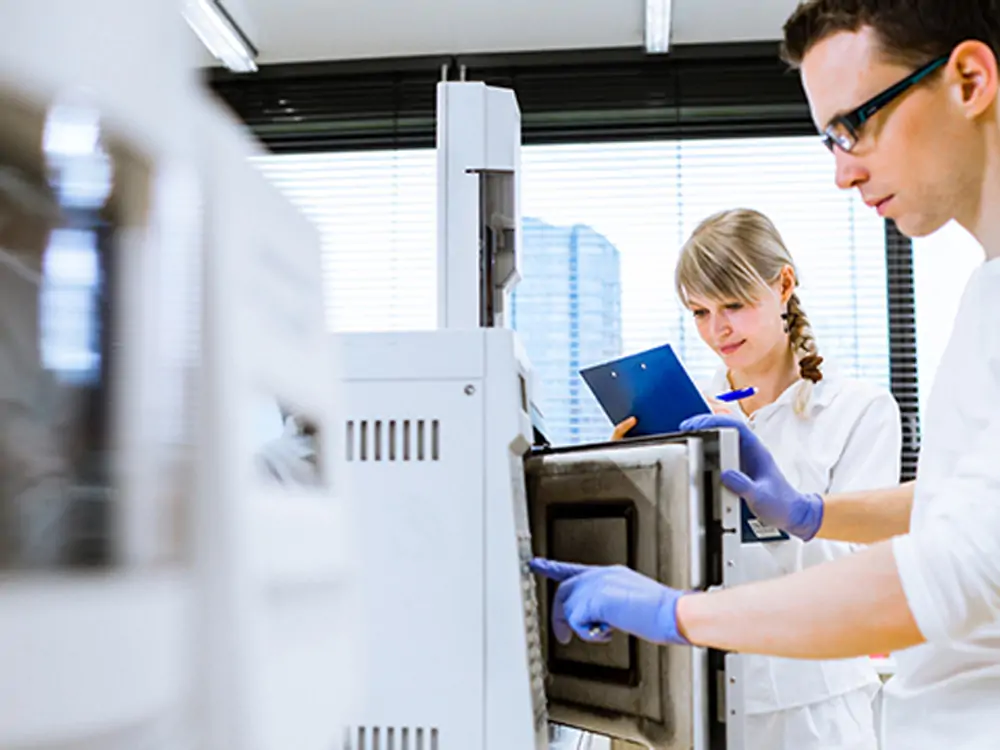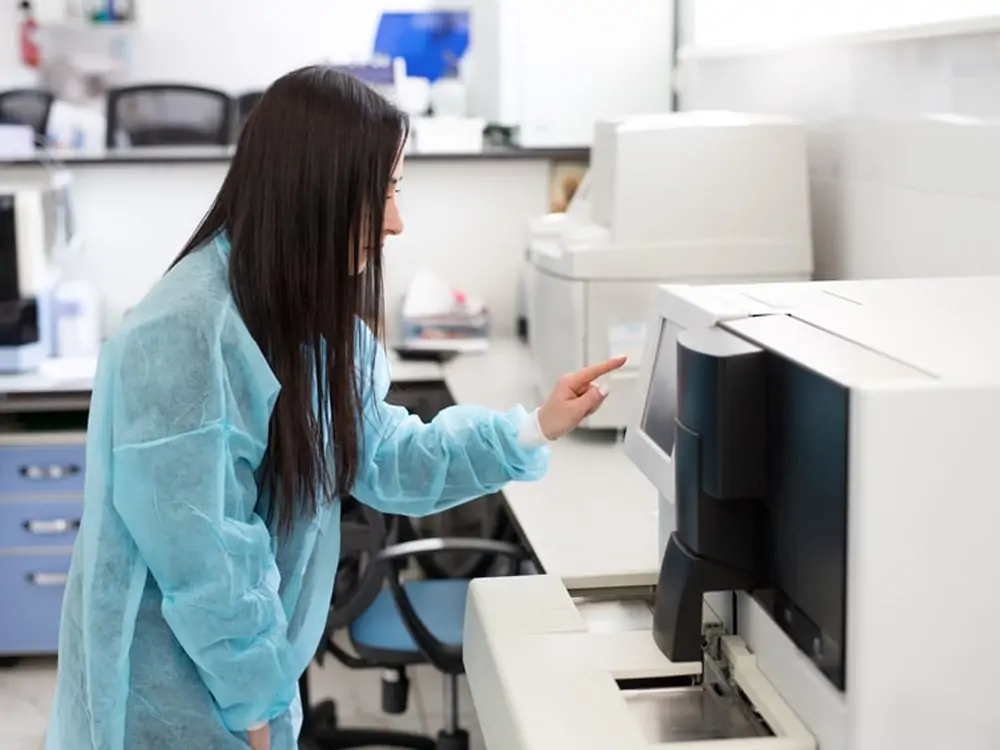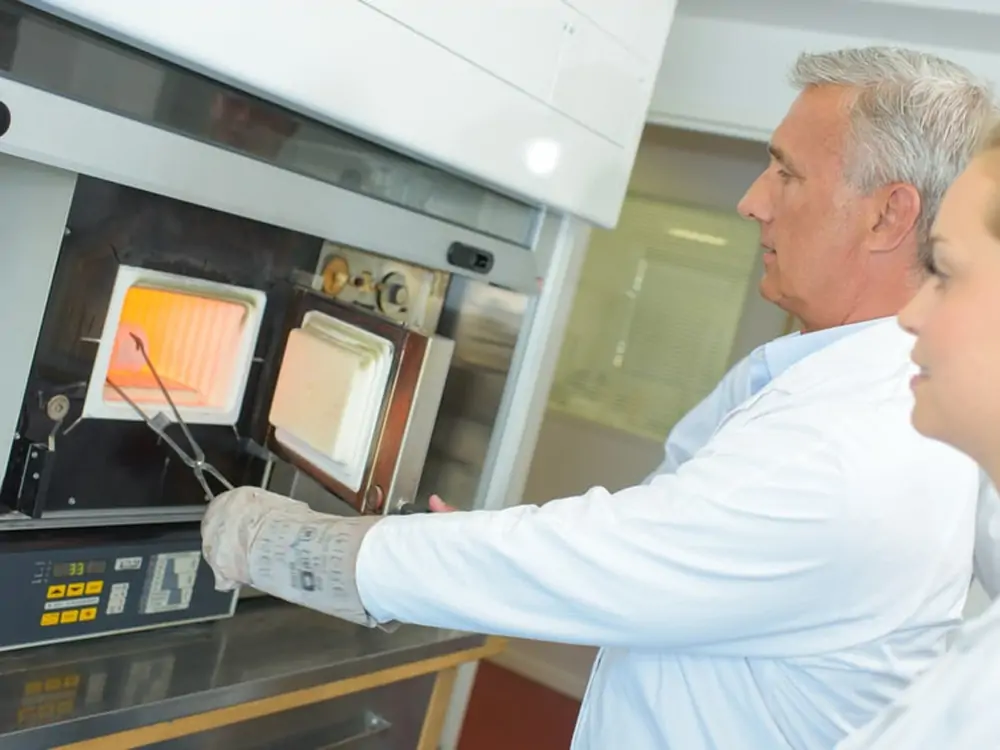A Lab oven plays a pivotal role in various scientific and industrial settings. It ensures precise temperature control for experiments, testing, and production processes.
The importance of these specialized lab ovens cannot be overstated. As they provide controlled heating environments essential for a multitude of applications. They’re indispensable in research, industry, and quality control measures. These ovens ensure consistent heating for tasks like drying and sterilizing. Industries like pharmaceuticals and food processing rely on precise thermal conditions. They’re also crucial for successful outcomes in various fields like environmental science. Lab ovens cater to electronics, necessitating controlled heating for best results.
Overview of the Article’s Focus
In this article, we’ll explore a lab oven’s functions in diverse settings. We aim to uncover its primary roles and applications across industries. Understanding the lab oven is key for accurate results in experiments. It’s vital for researchers, scientists, and technicians in their work. We’ll delve into their diverse uses, from scientific progress to industrial efficiency.
Additionally, We’ll cover the types of lab ovens, their features, and how to choose. This helps in selecting the right one based on specific needs.

Types of Lab Ovens
When we talk about lab ovens, we refer to specialized heating devices. These devices carry out a range of tasks requiring specific temperature conditions. These ovens come in different types, each serving distinct functions. There are four types: convection, vacuum, drying, and hybrid ovens. Each type serves distinct purposes and requirements.
Convection Ovens:
These ovens use a fan to circulate heated air. This hot air maintains uniform temperatures throughout. They are ideal for general heating and drying tasks. They ensure consistent results for experiments or sample preparations.
Vacuum Ovens:
These ovens operate under low-pressure conditions. They remove moisture or other volatile substances at lower temperatures than traditional ovens. This method prevents heat damage to sensitive materials. This feature makes them perfect for delicate processes like drying heat-sensitive samples.
Drying Ovens:
These are specially designed for drying materials or components. They remove moisture through controlled heating. In pharmaceuticals, these ovens are vital for precise substance drying. They ensure accuracy in product development by controlling moisture levels.
Hybrid Ovens:
These ovens combine features from different oven types. Hybrid ovens offer versatility by accommodating various tasks. They might merge vacuum functionalities with convection heating. This creates a wider range of uses.
Key Features of Lab Ovens:
Lab ovens are advanced tools for precision in science and industry. They ensure accuracy in diverse settings. Understanding their features is vital for optimal use. It guarantees precise and efficient results.
Precise Temperature Control:
Lab ovens have advanced temperature controls for precise, consistent temperature maintenance. Users can rely on these mechanisms for accurate experimental conditions. This feature is fundamental for experiments and processes that demand specific heat conditions. Hence, this character ensures reliability in outcomes and reproducibility in experiments.
Programmable Settings:
One of the defining attributes of lab ovens is their programmability. Users can set temperature, time, and other parameters for automated and repeatable operations. This streamlines workflows boosts productivity, and minimizes errors in experiments or production.
Safety Measures and Alerts:
Safety is the top priority in labs. Ovens come with many safety features. They ensure a secure work setting. These include alarms, automatic shut-offs, and monitoring systems to prevent overheating or malfunctioning. Alerts and safety protocols are safeguards, reducing risks and defending equipment. They protect both personnel and machinery from potential harm.
Interior Configurations for Versatility:
Lab ovens offer versatile interior configurations to accommodate diverse requirements. Adjustable shelves, compartments, and specialized chambers handle diverse sample sizes. Many chambers enable simultaneous processing, enhancing efficiency in tasks.
Temperature Control and Stability of Lab Oven
When it comes to laboratory ovens, temperature control and stability are paramount. These ovens play a pivotal role in various experimentation and procedural processes.
Role in Experimentation and Processes
Lab ovens play a vital role in scientific research and industry. They create perfect conditions for experiments. These include drying, curing, and sterilizing materials. In pharmaceuticals, they help develop drugs by ensuring even heating or drying. In materials science, they’re essential for heat treatments. These treatments change materials’ properties. Consistent temperatures guarantee precise processes. Researchers can replicate conditions accurately. This reliability leads to dependable results.
Ensuring Accuracy through Advanced Features
Lab ovens aren’t about temperature control; they’re advanced. They boast programmable controls and sensors for precision. Some have airflow systems ensuring even heat distribution. Safety features like alarms prevent overheating risks. These tech perks ensure accuracy and safety in labs.

Applications of Lab Oven Across Industries
Lab ovens, versatile across industries, serve varied purposes, highlighting their significance.
Biotechnology: Cell Culture, Sterilization, etc.
- Lab ovens are pivotal in biotechnology, ensuring controlled environments for cell growth. They provide precise conditions crucial for fostering cell cultures. They ensure the ideal conditions for nurturing cells and conducting experiments.
- Moreover, lab ovens are vital for sterilizing equipment. They ensure the aseptic conditions necessary for experiments and research. Also, they safeguard against contamination and maintain the integrity of biological samples.
Pharmaceuticals: Drug Development, Stability Testing, etc.
- Within the pharmaceutical realm, lab ovens contribute much to drug development processes. These ovens ensure stability testing for pharmaceutical compounds. They subject them to a controlled temperature. Additionally, they regulate humidity levels. Lab ovens simulate real-world conditions to assess their shelf life and efficacy.
- Additionally, they boost processes like drying and sterilizing equipment crucial in pharmaceutical manufacturing.
Materials Science: Curing, Annealing, Polymer Testing, etc.
- Lab ovens are essential in materials science for various applications. These ovens aid in curing processes for optimal material hardness. They ensure strength in items like composites and coatings.
- Annealing, a crucial function, heats materials for property modification or structure alteration. It enhances workability or changes material structures almost.
- Testing polymers relies particularly on lab ovens. These ovens help understand polymer behavior. They do this under varying conditions. Lab ovens ensure controlled experimentation.
Food Industry: Dehydration, Baking, Shelf-life Studies, etc.
- Lab ovens play a vital role in the food industry in several factors. They aid in dehydration and preserving food by removing moisture.
- Additionally, these ovens mimic baking, aiding in testing new recipes and food. They simulate baking to develop fresh food ideas and products.
- Moreover, Lab ovens study shelf-life, exploring food quality and longevity conditions. They’re crucial for analyzing how varied environments affect different items.
How Lab Ovens Ensure Consistency and Reproducibility
Lab ovens are crucial for consistent, reliable scientific results. They maintain precise temperatures for various processes. These include drying, curing, and sterilization tasks. With controlled conditions, experiments stay consistent. This reduces errors and improves result reliability. You enjoy reliable, replicable outcomes every time.
How Lab Ovens Contribute to Reliable Results
Lab ovens ensure reliable results by controlling temperature and humidity. They prevent fluctuations that could affect experiments. Consistency across batches becomes simpler with this stability. Ovens remove moisture and unwanted substances for sample purity. In scientific fields, they’re indispensable tools, impacting outcomes quality.
Case Studies Emphasizing Reliability
Lab ovens are important in research and development. Pharmaceuticals use them to dry medications and vaccines for consistent potency. Material science relies on their even heating for precise material synthesis. Environmental research depends on their accuracy for sample analysis. These examples highlight their role in ensuring reliable scientific findings and innovations.
Safety Measures and Compliance
In a lab setting, Safety protocols for lab ovens in labs are crucial to prevent accidents. When dealing with hot equipment, make sure always to wear heat-resistant gloves. Ensure proper ventilation to avoid gas buildup, especially in ovens that emit fumes. Regularly check electrical connections and cords for any signs of crack or wear.
Compliance with Industry Standards
Ensuring compliance with industry standards ensures the dependability and precision of experiments. Familiarize yourself with manufacturer guidelines and follow recommended temperature and usage limits. Regularly validate oven performance against established standards. Regular calibration ensures precision and consistency in temperature control, vital for experimental integrity.
Importance of Maintenance and Calibration
Understanding the Importance of Maintenance and Calibration is key. Regular cleaning prevents residue buildup that could compromise results or cause safety hazards. Schedule routine maintenance to check for wear, tear, or malfunctioning components. Calibration maintains precise temperatures, which is crucial for experiment accuracy and consistency. Regular checks ensure control remains reliable and consistent.

Emerging Technologies in Lab Oven Design
Lab ovens in science evolve with innovations. Advanced materials improve insulation for precise temperature control. Smart ovens integrate IoT for remote monitoring and change. Nanotech enables portable, versatile oven designs. Innovations target airflow systems for better heat distribution. These technologies enhance efficiency, accuracy, and usability.
Predictions for Future Developments
Tomorrow’s lab ovens promise exciting enhancements. Imagine AI-driven models, learning and adapting to experiments for optimal conditions. Eco-friendly designs using renewable energy sources will gain traction, aligning with sustainability goals. Hybrid ovens blend heating methods, providing versatility. They cater to diverse research needs. Researchers aid from customizable features in ovens for tailored experiments. It empowers them with specific solutions for their work. This trend might become widespread, enhancing research capabilities further.
Potential Impact on Research and Industry Practices
These advancements herald a transformative era. Enhanced precision and automation will streamline research processes, saving time and resources. Greater accessibility, especially with portable designs, can revolutionize field work. Sustainability-driven ovens align with eco-conscious initiatives, shaping ethical research practices. Customizable functionalities cater to diverse research demands, fostering innovation across industries. Lab ovens catalyze groundbreaking discoveries, redefining scientific standards in research methodologies. These ovens redefine the benchmarks, making research more accurate and impactful.
Recap of the Purpose of a Lab Oven
In conclusion, lab ovens play an important role in scientific research. Also, they have a vital role in industrial applications. We’ve explored how they ensure precise experiments and manufacturing by maintaining consistent temperatures. Consistency in temperature is their significance, aiding accuracy in data. Lab ovens uphold quality by preserving precise temperature conditions for manufacturing. Lab ovens are vital in labs and industries, driving research forward. They elevate production standards, fostering innovation and precision in operations.
For more environmental test chamber, Please visit: https://chiuventionclimatechamber.com
For more environmental test simulation programmes,environmental testing knowledge, instrument knowledge, and environmental testing laboratory knowledge, please contact us: [email protected]